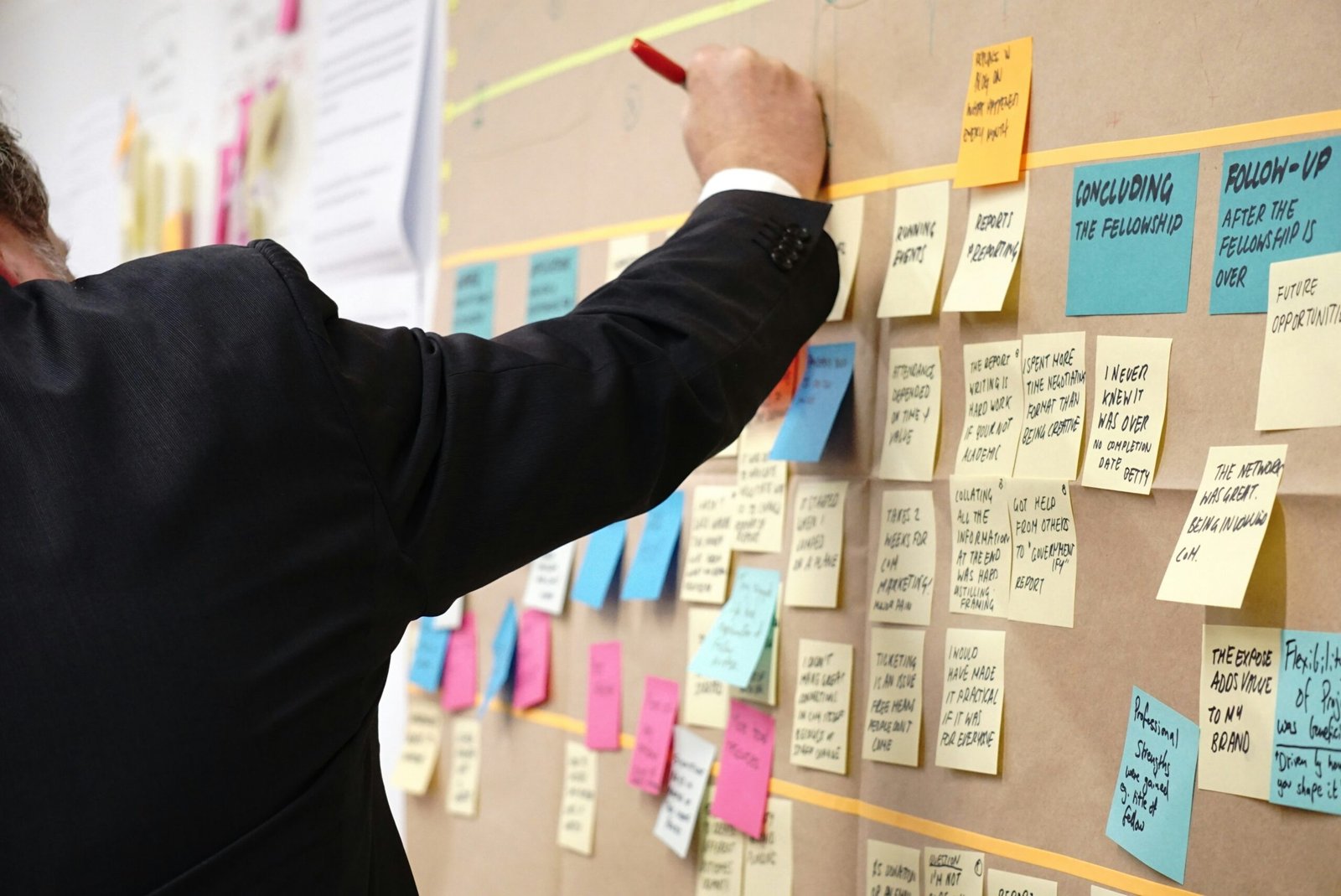Managing multiple projects simultaneously can be a daunting task. Balancing deadlines, resources, and team dynamics requires a strategic approach to ensure all projects are completed successfully. Effective project management is not just about keeping track of tasks but also about inspiring and leading your team through challenges.

Prioritize Your Projects
One of the first steps in managing multiple projects is prioritization. Not all projects are created equal; some will inevitably have higher stakes or more immediate deadlines. Assess each project’s importance and urgency to determine where to focus your efforts.
Richard Branson emphasizes the importance of prioritization: “Business opportunities are like buses, there’s always another one coming.” By identifying the most critical projects, you can allocate your resources and time more effectively, ensuring that you meet the most pressing deadlines.
Develop a Detailed Plan
Once you’ve prioritized your projects, the next step is to develop a detailed plan for each one. Break down each project into smaller, manageable tasks with clear deadlines. Use project management tools like Gantt charts or Kanban boards to visualize your workflow and keep track of progress.
HBR suggests that detailed planning is crucial: “Successful project managers know that planning is everything. Without a plan, the best efforts of your team can be wasted on unproductive tasks.” A detailed plan helps you stay organized and ensures that every team member knows their responsibilities and timelines.
Utilize Project Management Tools
In today’s digital age, numerous project management tools can help streamline your workflow. Tools like Trello, Asana, and Microsoft Project offer features for task management, collaboration, and progress tracking. These tools can significantly enhance your ability to manage multiple projects by providing a centralized platform for all project-related activities.
Richard Branson highlights the importance of using the right tools: “Technology and the internet have changed the world, and it’s up to businesses to keep up with the times.” Leveraging technology can make your project management more efficient and reduce the risk of oversight.
Delegate Effectively
Effective delegation is a cornerstone of successful project management. As a project manager, it’s crucial to trust your team and delegate tasks based on their strengths and expertise. Clear communication and defined roles are essential to ensure that everyone knows what is expected of them.
HBR notes, “The best leaders delegate tasks and responsibilities to their team members, empowering them to take ownership of their work.” By delegating effectively, you can focus on higher-level strategic tasks and ensure that your projects are progressing smoothly.
Maintain Clear Communication
Clear and consistent communication is vital when managing multiple projects. Regular updates and check-ins with your team can help identify potential issues early and keep everyone on the same page. Use tools like Slack, Zoom, or Microsoft Teams to facilitate communication and collaboration.
Richard Branson emphasizes the importance of communication: “Communication is the most important skill any leader can possess.” Ensuring that your team members are informed and engaged can prevent misunderstandings and keep your projects on track.
Set Realistic Deadlines
Setting realistic deadlines is crucial to avoid burnout and ensure the timely completion of projects. While it’s important to be ambitious, setting unattainable deadlines can lead to stress and decreased productivity. Assess the scope of each project and allocate sufficient time for each task.
HBR advises, “Effective project managers understand the importance of realistic deadlines. They balance ambition with practicality, ensuring that their teams are motivated without being overwhelmed.” By setting achievable deadlines, you can maintain a steady workflow and keep your team motivated.
Monitor Progress Regularly
Regularly monitoring the progress of your projects is essential to ensure that everything is on track. Use project management tools to keep an eye on task completion and address any delays or issues promptly. Regular progress reviews can help you identify areas for improvement and make necessary adjustments.
Richard Branson advocates for constant evaluation: “To be successful, you have to be out there, you have to hit the ground running.” Monitoring progress regularly allows you to stay proactive and responsive to any challenges that arise.
Manage Your Time Wisely
Time management is a critical skill for handling multiple projects. Prioritize your tasks based on importance and urgency, and allocate specific time blocks for focused work on each project. Avoid multitasking, as it can reduce efficiency and increase the likelihood of errors.
HBR highlights the importance of time management: “Successful project managers are masters of their time. They allocate their hours strategically, ensuring that every moment is spent productively.” Effective time management can help you stay organized and ensure that you meet all your project deadlines.
Foster a Collaborative Environment
Encouraging collaboration within your team can lead to more innovative solutions and a more cohesive work environment. Promote open communication and teamwork, and create opportunities for team members to collaborate on tasks and share their expertise.
Richard Branson believes in the power of collaboration: “Great things in business are never done by one person; they’re done by a team of people.” Fostering a collaborative environment can enhance your team’s productivity and lead to better project outcomes.
Manage Risks Proactively
Every project comes with its own set of risks. Identifying potential risks early and developing contingency plans can help you manage these challenges effectively. Conduct regular risk assessments and be prepared to adapt your plans as needed.
HBR advises, “Risk management is a proactive process. Successful project managers anticipate potential issues and develop strategies to mitigate them.” By managing risks proactively, you can minimize disruptions and keep your projects on track.
Keep Stakeholders Informed
Keeping stakeholders informed about the progress of your projects is essential for maintaining their support and trust. Regular updates and transparent communication can help manage expectations and build confidence in your team’s ability to deliver.
Richard Branson emphasizes transparency: “Transparency is key. When you’re transparent with your stakeholders, you build trust and respect.” Keeping stakeholders informed can ensure that you have their backing and can address any concerns promptly.
Stay Adaptable
Flexibility and adaptability are crucial when managing multiple projects. Unexpected challenges and changes are inevitable, and your ability to adapt quickly can determine the success of your projects. Stay open to feedback and be willing to adjust your plans as necessary.
HBR notes, “Adaptability is a key trait of successful project managers. They navigate changes and challenges with ease, ensuring that their projects stay on course.” Being adaptable allows you to respond effectively to any unforeseen circumstances.
Celebrate Milestones
Celebrating milestones and achievements can boost morale and keep your team motivated. Recognize and reward your team’s hard work and successes, no matter how small they may seem. This can foster a positive work environment and encourage continued effort and dedication.
Richard Branson believes in celebrating success: “Celebrate your successes. Find some humor in your failures. Don’t take yourself so seriously. Loosen up and everybody around you will loosen up.” Celebrating milestones can create a positive and motivated team atmosphere.
Continuous Improvement
Strive for continuous improvement in your project management practices. Regularly review your processes, seek feedback from your team, and look for ways to enhance efficiency and effectiveness. Continuous learning and improvement can lead to better project outcomes over time.
HBR emphasizes the importance of continuous improvement: “The best project managers are always looking for ways to improve. They learn from each project and apply those lessons to future initiatives.” By fostering a culture of continuous improvement, you can enhance your project management skills and achieve greater success.
Conclusion
Managing multiple projects simultaneously requires a strategic approach, effective delegation, and clear communication. By prioritizing tasks, utilizing project management tools, and maintaining a collaborative and adaptable environment, you can successfully navigate the complexities of multiple projects. Drawing on the wisdom of Richard Branson and insights from Harvard Business Review, these tips can help you lead your team to success and achieve your project goals.
Remember, effective project management is not just about completing tasks; it’s about inspiring and leading your team through challenges. With the right strategies and a positive mindset, you can manage multiple projects with confidence and achieve outstanding results.





